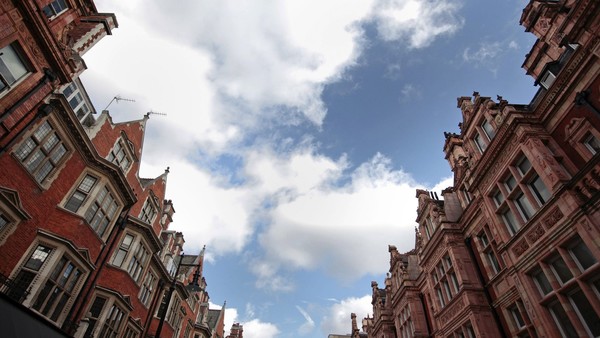Soaring house prices boost inheritance tax receipts
07-30-2016
Estates in London and the south-east paid almost half of the country’s inheritance tax bill in 2013-14 because of rising house prices, which mean an increasing number of people are being hit by the death duty.
The data, which underscore the government’s heavy reliance on London to fill state coffers, show the capital and the south-east contributed 49 per cent of IHT collected during the year to April 2014, HM Revenue & Customs said on Friday.
Meanwhile, official forecasts suggest the proportion of estates liable for the death duty will reach 8.3 per cent — rising above 8 per cent for the first time since 1976 — because of a lengthy house price boom that is showing signs of slowing since the Brexit vote.
Properties, household savings and stocks, bonds and other financial securities make up the bulk of assets on which inheritance tax is levied. Among all estates that paid inheritance tax in 2013-14, 36 per cent of assets were held in UK housing and 30 per cent in securities.
Governments of all colours have responded to public dislike of IHT and taken steps to reduce the reach of the tax in recent years.
But others argue the opposite. Owen Smith announced on Wednesday that, if elected Labour leader, he would favour reversing the inheritance tax cut announced in last summer’s Budget.
Stuart Adam, of the Institute for Fiscal Studies, said there were principled arguments for both points of view.
Inheritance tax can be seen as double taxation and it hits people more if they want to provide for their children than if they spend the money themselves. But if the tax were not there, children of wealthy parents would enjoy tax-free transfers, exacerbating inequalities of opportunity.

The existing tax has many problems. Once described by economist John Kay and former Bank of England governor Mervyn King as “a tax that favours the healthy, wealthy and well-advised”, it is described by Mr Adam as being “shot through with loopholes and not that effective at redistributing wealth”.
A comprehensive review of the UK tax system, headed by Nobel Prize winner James Mirrlees, suggested there is a case for either extending the tax to capture more fully transfers between generations — including gifts during life — or removing the tax altogether.

As it stands, only a small minority of estates pay the tax. Tax specialists point out that the majority of people who complain about it will never pay it.
“It is an aspirational tax,” said Andrew Hubbard, a former tax inspector who now works for accounting firm RSM, who also believes changes governments make to IHT tend to be politically, rather than fiscally, motivated.
Gifting and investment reliefs allow the affluent to sidestep the tax
“It makes relatively little revenue for the government but generates a lot of public interest,” Mr Hubbard said.
“Raising the bar for homeowners to £1m [in the Budget last July] was a masterstroke, when in reality the chances of the surviving spouse still living in a £1m home are low. People downsize.”
The £4.8bn that the government is set to raise from IHT this year is a tiny fraction of forecast total tax receipts of £716.5bn, according to OBR forecasts.
Copyright The Financial Times Limited 2016. You may share using our article tools.
Please don't cut articles from FT.com and redistribute by email or post to the web.


